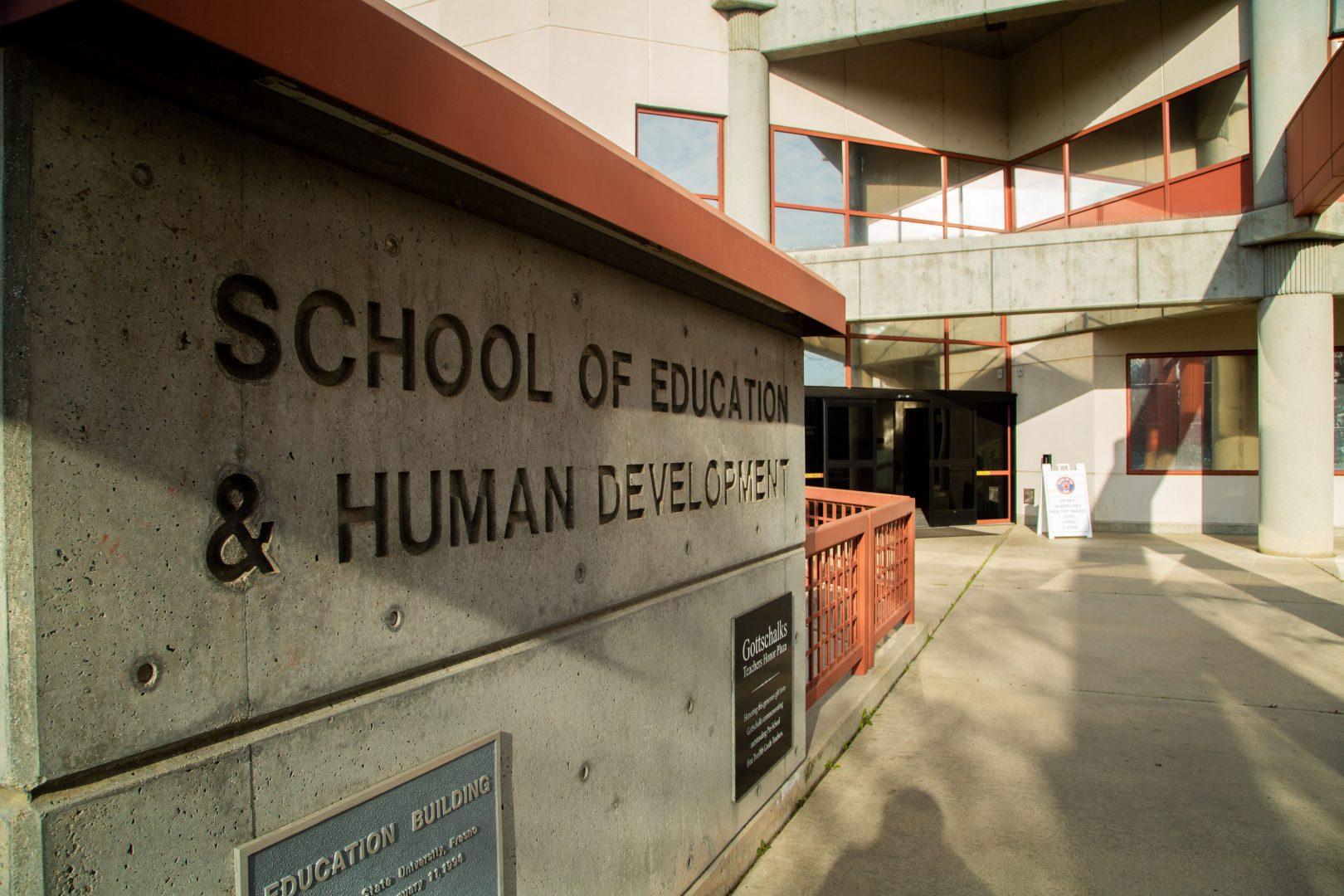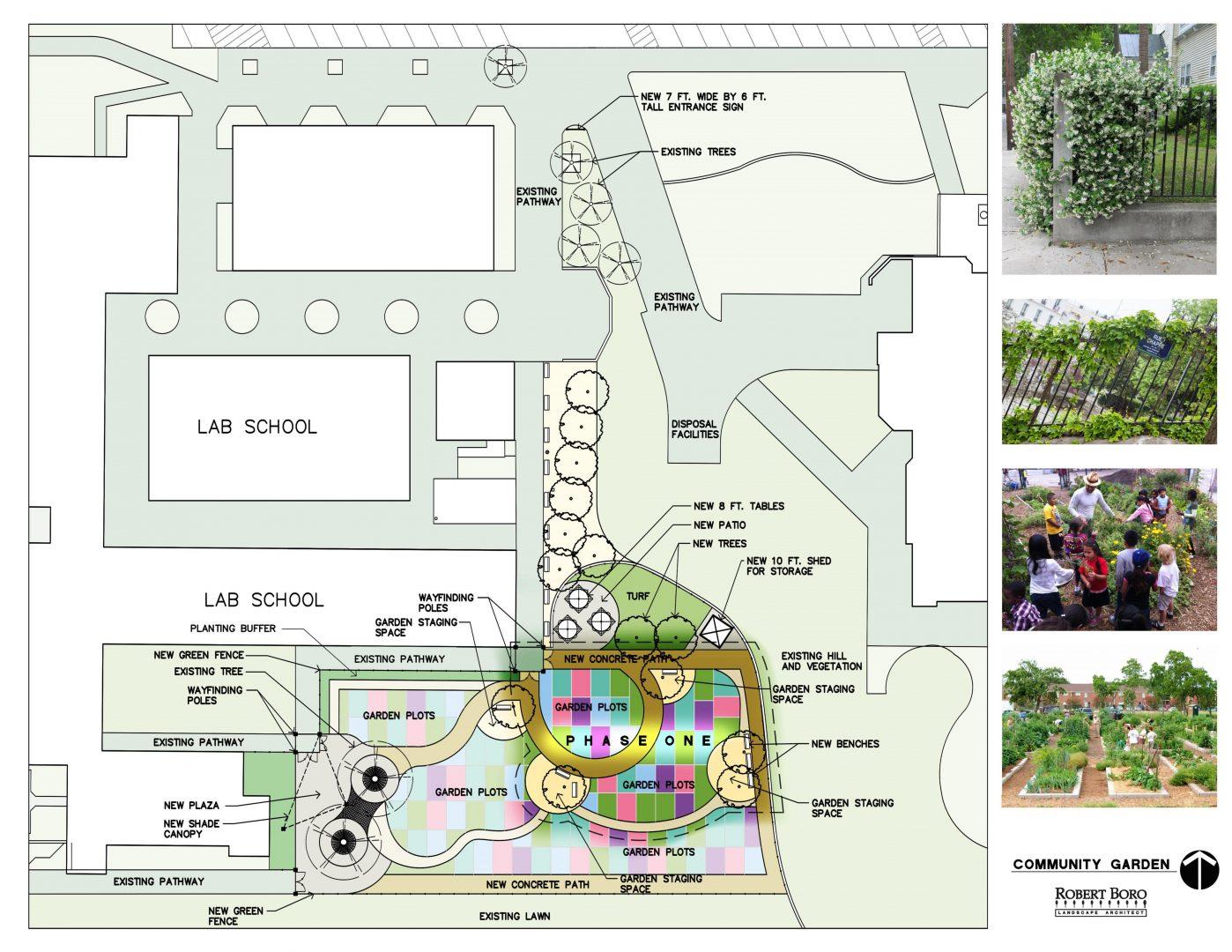Students, faculty, staff and community members will have a new place to learn and relax, as a result of the Kremen School of Education & Human Development’s SECREd Garden Project.
The garden will be located west of the Kremen School and the Lab School, which runs along Shaw Avenue. According to the project’s website, the vision of the SECREd Garden “integrates programming that supports education at all levels.”
The SECREd Garden project will offer learning spaces on childhood, higher and teacher education. It will also support community outreach, campus growth, personal health and more.
The project, which started in 2016, is led by Christina Macias, adjunct professor of education; Dr. Kathleen Godfrey, interim associate dean at the Kremen School; Dr. Heather Horsley, assistant professor of education; and Calliope Correia, manager of Fresno State’s Horticulture Nursery.
Macias and her fellow co-owners created a fundraising campaign for construction and groundbreaking, raising $5,730. In this donation campaign, donors chose different donation amounts to support outdoor learning exercises for children, curricular activities, foundational tools and critical infrastructure. Other donation amounts included options for stepping stones and placards engraved with donors’ names placed in the garden.
Macias said locating the garden next to the Kremen School would provide a good model for future programs and connect the garden to the teacher education program.

“We could also be giving pre-service teachers an opportunity to work in outdoor education spaces so that they would be more likely to be interested in that curriculum when they become teachers,” Macias said.
Macias said she got the idea for the garden from her master’s research where she chose to focus on science experiences for early education.
“What I found in that research is that in early education … elementary school science is the lowest curriculum priority,” Macias said.
Macias spent two years observing outdoor education programs and how their mission statements varied.
“And so, I came back to my advisor and said, ‘I think we should build out an outdoor education space, centered around gardening so that we can address all those particular mission statements,’” Macias said.
Macias said that “the current project has an estimated need of approximately $200,000 in order for construction to begin.”
According to Macias, completion of the garden’s construction is dependent on the funding that they receive. Currently, the garden has raised nearly $125,000, which has been acquired through fundraising, grants and private donations.
Once all the funds are raised, Macias said that “the next step would be the university granting the land to us, which is next to the Kremen School of Education, and then they would be able to set a construction date.”
Dr. Cathy Yun, former associate professor of education and senior researcher at the Learning Policy Institute, has worked with Macias to get the administration to approve the project.
Dr. Yun and Macias talked to various people on campus including Debbie Adishian-Astone, and the dean of the Kremen School.
“We’re asking the university to like give us land and resources for this idea that we have, and so we started kind of like developing the ideas for it a little bit, and then started just like talking to people [including] our Dean, who connected us with, you know, the development office and we got to know different people across campus,” Yun said.
With the COVID-19 pandemic, Macias and her co-founders were figuring out how to keep working on the project, with a lot of focus on an online discussion about the garden.
“We started social media accounts [on] Instagram, Facebook, and Twitter and so we’re continuing the conversation in that way,” Macias said.
Regardless of the challenges, Macias said she views the pandemic as an opportunity to continue planning the project.
Macias said, “I don’t think that COVID has impacted the progression of the project, in fact I think quite the opposite.”
“It really made the project more visible and so we actually see more momentum on the project now than in the past.”
Yun said the reaction from the campus community has been very positive as most people have been very receptive to the idea.
“The rationale for why we thought this was needed on our campus resonated with people all across the campus in all different departments and colleges,” Yun said. “I think maybe part of it was a timing thing that people were like ready for this kind of idea.”
People who are interested can still help out with the project by spreading the word, according to Macias.
“I think the most important part of the project right now is making the project visible and visible to the public so that we can garner interest in it, and find more support in that way,” she said.





